#Importance Of Data Science
Explore tagged Tumblr posts
Text
Data science: what is it, main concepts and how to act?
What do you know about data science? Educating yourself on the topic is a great way to better understand the complexity of the world we live in today. There is not the slightest possibility of comparing the amount of information we have access to today with what humanity had available decades ago. It’s what we call the Information Age. The problem is that we’re talking about so much information…
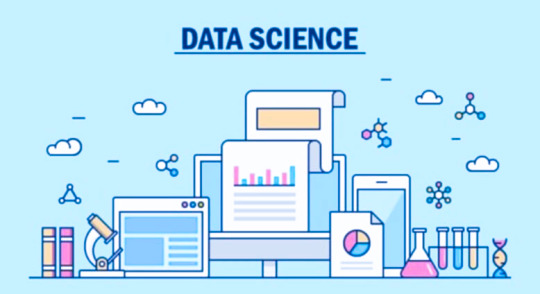
View On WordPress
0 notes
Text
Learn about the importance of Data Science
Discover the importance of data science and its impact across industries. Learn about statistical analysis, machine learning, and data visualization techniques that unlock valuable insights. Explore the job prospects and skills needed for a successful career in this rapidly growing field. Dive into the world of data-driven decision-making. Learn the best data science course in pitampura, Delhi
#Importance of data science#Data science importance#Data science course in pitampura#Data science institute in pitampura#Data science courses in pitampura#Data science course in delhi#Data science institute in delhi#Data scientist course delhi#Data scientist institute delhi#Data science courses in delhi#data science#data scientist
0 notes
Text




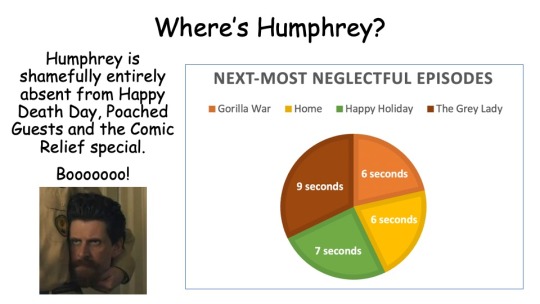


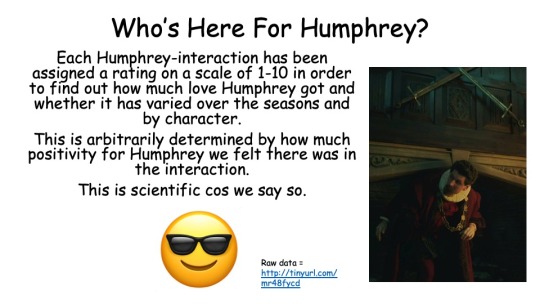
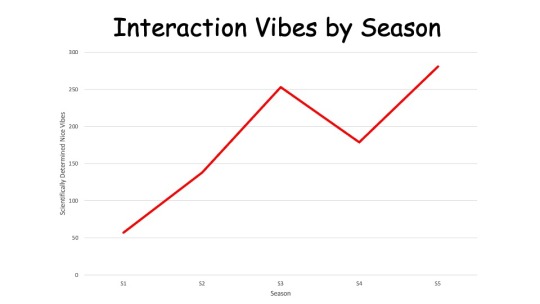


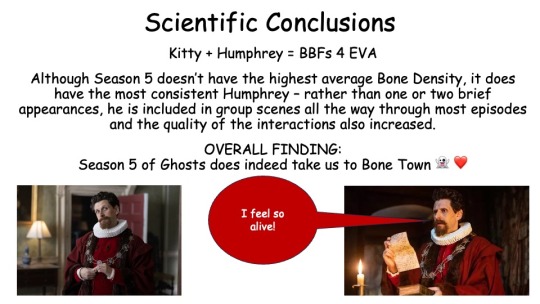
Curious whether there really was more of our favourite headless Tudor in season 5? Wonder no more, the data scientists are here! 👻🤍
#bbc ghosts#important science#sir humphrey bone#laurence rickard#data scientisting is important work#mooseidiot crochets#and does Very Important Science#bone density report#the young human of my acquaintance#six idiots
431 notes
·
View notes
Text
Feral Fidget Friday: Late Night Edition
Someone please send me a Sharpie, I wanna play Connect-The-Dots

#shaun evans#endeavour morse#feral fidget Friday#Sharpie edition#I will start a spreadsheet for his freckles#with a pivot table#I just need to find him to begin data collection#for science#this is highly important work#I might need a grant
36 notes
·
View notes
Text
this is yet another random academia nitpick i won’t let go of for weeks but someone in the comments of the victor ninov broccumentary claimed that science is a “incredible field that can’t be simplified to storytelling like this” because “it goes against human nature to do” and writing good sci comm goes against scientific integrity.
and the whole statement is incredibly stupid but in true anthropologist fashion i must say what on earth about science goes against human nature. the desire to test a phenomenon and revise your theories based on the results is literally one of the benchmarks for early modern humans. this is the behavior in corvid’s (tool use) that people loose their shit over. communicating findings to others?? collaborative work to reach an arbitrary goal that won’t necessarily have a direct benefit on your immediate life???? that’s how we domesticated staple crops dumbass. it’s science all the way down
#look i know i am Biased to qualitative research and can and have debated engineering folks over the need to understand that human expression#in an field cannot be summarized into qualitative data without ignoring important factors#(the categorizing tells us more about the *researcher’s* perspective than the subjects. sorry i’ve spent too long doing ethnography around#human factors / psych people. i’m so glad i escaped)#BUT. EVEN I WILL ACKNOWLEDGE TRADITIONAL EXPERIMENTAL SCIENCE HAS A WELL DEVELOPED AND DESERVED PLACE#AND ITS AN EXTREMELY HUMAN EXPRESSION#i have also debated the validity of human nature as a concept#<- anthropologist behavior. but regardless what the fuck is the point of this statements#‘science is hard because it’s unintuitive for the human brain’ clearly you know jackshit about the human brain or any of history#and that’s because you’re too obsessed with science and ignore the wonders of humanity.#you cannot take the science out of the humanity you cannot take the humanity out of the conduct of science#text✨
5 notes
·
View notes
Text
i really thought the society & sustainability class would be my fave this quarter but NAY. map city baby.
#my prof for that class is way cooler & better at teaching#AND they said we could make shit up for our final project as long as we demonstrate an understanding#of geospatial data and arcGIS#the example they gave was setting parameters for preferred dragon dens and mapping where one might like to live#anyway im also learning just like. way more#i think i prefer working with data over the more... social science side of environmental science#the social science aspect is ofc important but thats not really what im in school for. i dont think i need a degree in that to understand i
3 notes
·
View notes
Text
^^ citizen science contains lots of fun activities! Near me, the national health agency has a project where you can measure air quality, and you can get some cool tools out of it to see how it changes in different places :)
If you're feeling anxious or depressed about the climate and want to do something to help right now, from your bed, for free...
Start helping with citizen science projects
What's a citizen science project? Basically, it's crowdsourced science. In this case, crowdsourced climate science, that you can help with!
You don't need qualifications or any training besides the slideshow at the start of a project. There are a lot of things that humans can do way better than machines can, even with only minimal training, that are vital to science - especially digitizing records and building searchable databases
Like labeling trees in aerial photos so that scientists have better datasets to use for restoration.
Or counting cells in fossilized plants to track the impacts of climate change.
Or digitizing old atmospheric data to help scientists track the warming effects of El Niño.
Or counting penguins to help scientists better protect them.
Those are all on one of the most prominent citizen science platforms, called Zooniverse, but there are a ton of others, too.
Oh, and btw, you don't have to worry about messing up, because several people see each image. Studies show that if you pool the opinions of however many regular people (different by field), it matches the accuracy rate of a trained scientist in the field.
--
I spent a lot of time doing this when I was really badly injured and housebound, and it was so good for me to be able to HELP and DO SOMETHING, even when I was in too much pain to leave my bed. So if you are chronically ill/disabled/for whatever reason can't participate or volunteer for things in person, I highly highly recommend.
Next time you wish you could do something - anything - to help
Remember that actually, you can. And help with some science.
#hiiiii everyone hiiiiiiiiiii#citizen science is not only important and useful#but also MASSIVELY fun#you get to know what its like to be a scientist#learn about science and data collection#all while joining in a fun activity#these ones above are all focussed around biology but theres other fields as well#look up some citizen science projects near you!
41K notes
·
View notes
Text
The most important concept in Data Science is data understanding and preparation, as it forms the foundation for all subsequent analyses. This involves collecting, cleaning, and organizing raw data to ensure it is accurate, complete, and ready for analysis.
0 notes
Text
Survey selection bias is a common problem in early twenty-first century demographic analysis. It is well understood and accounted for (as much as possible) by competent statisticians. Any good faith demographer will include a methodology section in their report that should help identify potential sources of bias, and savvy individuals will use this information to properly interpret the data. For example, low sample sizes, restricting surveys to students at a particular college (who might be answering the questions for class credit or money), or (as listed above) telephone surveys can lead to nuances in the results.
However, laymen might lack the knowledge to account for these nuances. This can be exacerbated when media reports on the results, but fails to include the methodology (this is actually a good judgement of media impartiality and accuracy: if they include the survey size when reporting or other methodology details, especially in graphics, that is a good sign. If they omit it, that is a bad sign). People also are very prone to report simple summaries, such as final percentages, without including methodology detail, which leads to the spread of misinformation.
One extremely famous example of methodology bias was in the 1948 US Presidential Election. Based on confident polling data, the Chicago Tribune printed a newspaper headline "Dewey Beats Truman" when, in fact, Truman had won. The polls were all flawed in methodology, often directly polling individuals on a street corner where they could find people instead of stochastically selecting individuals from the entire population. There is a famous picture of Truman holding up this particular newspaper headline in triumph. Many people in the early twenty-first century are aware of this picture, as it has had a substantial cultural impact.
Let's consider the sampling bias of a classic polling method: the telephone survey.
In many jurisdictions, robo-calling cell phone numbers is illegal, so right off the jump, our sample is limited to people with landlines.
Second, our survey's calling centre probably doesn't operate 24/7, and you can only answer a home landline when you're at home, so we're also selecting for people who tend to be at home during our calling centre's office hours.
Third, most people who have landlines probably also have answering services and caller ID, so we're additionally selecting for people who answer unknown numbers rather than letting them go to the machine.
Fourth, our recipient needs to be able to participate in the survey, so we're also selecting for people who speak the language(s) in which the survey is being administered.
Finally, after all this, most people will just hang up once they figure out they're being polled, so in sum, we're selecting for people who:
have landlines;
are usually at home during our calling centre's office hours;
customarily answer unknown numbers;
speak the language(s) in which the survey is administered; and
are actually interested in responding to surveys.
Any one of these factors is likely to introduce very serious bias into our results; all of them taken together are going to render our data practically meaningless for most purposes.
Now, understand that this still represents less selection bias than trying to do demographic surveys by reblogging Tumblr polls.
#period novel details#100% of survey responses come from people who answer surveys#and you know what? that's kind of empowering#I will absolutely spend 15 minutes answering random phone call surveys#for one it supports science and I'm in favor of that#and for another I basically get to have direct impact on public policy#the fewer people that answer these surveys the more that MY personal opinions get reflected in the results#and you can bet that any technocrat or mercenary politician will pay attention to these survey results for cold calculus alone#so it is important that MY views get seen#otherwise they might only ever be listening to old retirees who have nothing better to do than answer survey data
9K notes
·
View notes
Text
The Importance of Data Science in 2023
Data Science brings various opportunities to you. If you want to build your career in Data Science, learn about the importance of data science in 2023, which will help you learn the latest concepts.

#Importance of Data Science#Data Science importance#Best Data science course in Delhi#Best Data Science Institutes in Delhi#Data science institute in Delhi#Data scientist course in Delhi#Data scientist institute in Delhi#Data science training in Delhi#data science#data scientist#artificial intelligence#machine learning
0 notes
Text
The Importance of Hands-on Projects in Data Science Training
The Importance of Hands-on Projects in Data Science Training
Data science is one of the most sought-after fields today, and as such, mastering it requires more than just theoretical knowledge. While understanding the fundamentals of data science, machine learning, AI, and analytics is crucial, practical application is where the real learning happens. One of the best ways to build expertise is through hands-on projects. In Data Science Training Marathahalli, practical exposure through real-world projects is indispensable in bridging the gap between theory and practice. Let's explore how these hands-on projects contribute to mastering data science and the types of projects you can expect during your training.
Real-World Application of Theoretical Concepts
Practical, hands-on experience is key to internalizing the concepts learned in Data Science Classes Bangalore. Through real-world projects, students can apply the theoretical knowledge they’ve gained in areas like statistics, machine learning, and data analysis. This exposure allows students to gain insight into the complexities of working with real datasets, which are often messy, incomplete, and noisy. For instance, in Machine Learning Course Marathahalli, students often work on projects like predictive modeling for business applications or building recommendation systems. These projects involve cleaning data, selecting the right algorithms, and fine-tuning models, which is crucial for gaining practical skills. By engaging in such projects, students not only grasp theoretical concepts but also learn how to overcome the challenges that come with real-world data.
For more on real-world data science training, you can visit Data Science Training Marathahalli.
Building a Strong Portfolio
A strong portfolio is one of the most important assets for any aspiring data scientist. By undertaking hands-on projects during your Data Science Certification Marathahalli, you can build a collection of work that demonstrates your ability to solve complex problems and think critically. For example, Big Data Course Marathahalli students may work on projects related to processing and analyzing large datasets using frameworks like Hadoop and Spark. Such projects showcase a student’s capability to work with big data technologies, which are highly valued in the job market. Having these projects in your portfolio helps employers see the practical application of your skills and gives you an edge over candidates with only theoretical knowledge.
Explore more about building a portfolio in Data Science Certification Marathahalli.
Learning by Solving Industry Problems
One of the greatest benefits of hands-on projects is the opportunity to solve real industry problems. Data Science Bootcamp Marathahalli and other intensive training programs often simulate business scenarios where students can apply their learning to solve real problems, which helps them understand the industry's needs. For example, students might work on projects that focus on customer segmentation for marketing or churn prediction for subscription-based businesses. Such projects help students gain a deeper understanding of how data science is applied in the real world, preparing them for roles in various industries such as finance, healthcare, and e-commerce.
Find out more about industry-driven projects in Data Science Bootcamp Marathahalli.
Enhancing Problem-Solving and Critical Thinking Skills
Data science is all about solving problems, and practical projects provide an excellent platform for enhancing your problem-solving and critical thinking skills. For instance, during the Advanced Data Science Marathahalli course, students may work on challenging projects involving deep learning or neural networks. These types of projects push students to think critically, troubleshoot issues, and explore different solutions to arrive at the most optimal one. Hands-on experience helps refine analytical thinking, which is an essential skill for any data scientist. Additionally, students learn how to work with tools such as Python for data science, R, SQL, and machine learning libraries, which are crucial for handling real-world problems effectively.
Learn more about critical thinking in data science through Advanced Data Science Marathahalli.
Collaborative Learning and Teamwork
Data science is rarely a solitary job. In a professional setting, data scientists often work in teams to tackle large-scale projects. This collaboration is an important part of hands-on projects in training programs like AI and Data Science Course Marathahalli. These programs typically encourage teamwork and group projects, which simulate real-world working conditions. By collaborating with others, students learn valuable skills such as communication, delegation, and collective problem-solving. Working in teams also exposes students to different perspectives, which helps them approach problems more creatively and efficiently.
Find more about team-based learning in AI and Data Science Course Marathahalli.
Gaining Familiarity with Real Datasets
One of the major challenges in data science is working with real-world datasets. These datasets often contain missing values, outliers, and inconsistencies that need to be addressed before any meaningful analysis can be performed. During the Python for Data Science Marathahalli training, students get hands-on experience with Python libraries like Pandas, NumPy, and Matplotlib to manipulate and visualize data. They also learn data wrangling techniques to prepare data for analysis. Projects in this area might include tasks like cleaning a messy dataset or building a data pipeline to automate data collection and preprocessing. These experiences help students build confidence and become proficient in handling data like a professional data scientist.
To gain experience with real datasets, explore Python for Data Science Marathahalli.
Exposure to Latest Tools and Technologies
The field of data science is constantly evolving, with new tools, frameworks, and techniques emerging regularly. Hands-on projects provide students with the opportunity to explore these latest tools and technologies in a practical context. For example, during Deep Learning Course Marathahalli, students may work with neural networks and deep learning frameworks like TensorFlow or PyTorch. They may also explore cloud-based platforms like AWS or Google Cloud to deploy their models. This exposure ensures that students are up-to-date with the latest developments in the field and prepared to use these technologies in their professional careers.
Stay updated with the latest tools through Deep Learning Course Marathahalli.
Improving Job Readiness
One of the key objectives of Data Science Job-Oriented Course Marathahalli programs is to make students job-ready. Hands-on projects play a major role in this by giving students the practical skills and experience that are directly applicable in the workplace. For example, projects like time series forecasting, natural language processing (NLP), or building machine learning models from scratch prepare students for real-world job roles. These projects are not only valuable learning experiences but also provide students with the opportunity to showcase their skills to potential employers.
Learn how hands-on projects help in job preparation through Data Science Job-Oriented Course Marathahalli.
Getting a Taste of Data Science at Scale
Some training programs, like Data Science Online Course Marathahalli, include projects that involve handling data at scale. For example, students might be asked to build and deploy a data pipeline that ingests, processes, and visualizes large datasets. These projects provide invaluable experience in dealing with challenges related to scalability, performance, and optimization. Students learn how to manage large volumes of data, a skill that is highly sought after in today's data-driven world. This type of training is essential for preparing students to work on large-scale enterprise projects after certification.
Explore large-scale projects in Data Science Online Course Marathahalli.
Conclusion
Incorporating hands-on projects into Data Science Training Marathahalli is crucial for mastering the subject. These projects allow students to apply theoretical knowledge to solve real-world problems, build strong portfolios, and gain industry-relevant experience. By working on real datasets, using the latest tools, and collaborating with others, students develop the skills necessary to excel in the competitive data science job market. Whether through predictive modeling, machine learning, or big data analytics, hands-on projects are the key to becoming a proficient data scientist and advancing your career.
For more information on data science programs and projects, check out Data Science Training Institutes Near Marathahalli.
0 notes
Text
^ The value of understanding how to critically analyze studies, and why it's important not to just gloss over the findings.

Source

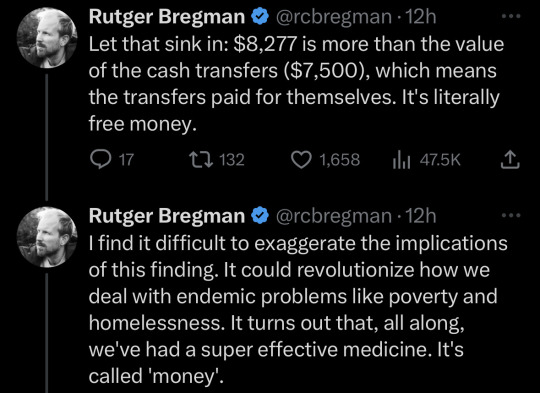
Source
#statistics may be boring but its important#science is about replicating and validating studies#not just going with one and calling it good#question science#question everything#I hated the four statistics classes I had to take#but they've been useful#think critically#don't let them blind you by twisting data
55K notes
·
View notes
Text
playing science telephone
Hi folks. Let's play a fun game today called "unravelling bad science communication back to its source."
Journey with me.
Saw a comment going around on a tumblr thread that "sometimes the life expectancy of autism is cited in the 30s"
That number seemed..... strange. The commenter DID go on to say that that was "situational on people being awful and not… anything autism actually does", but you know what? Still a strange number. I feel compelled to fact check.
Quick Google "autism life expectancy" pulls up quite a few websites bandying around the number 39. Which is ~technically~ within the 30s, but already higher than the tumblr factoid would suggest. But, guess what. This number still sounds strange to me.
Most of the websites presenting this factoid present themselves as official autism resources and organizations (for parents, etc), and most of them vaguely wave towards "studies."
Ex: "Above And Beyond Therapy" has a whole article on "Does Autism Affect Life Expectancy" and states:

The link implies that it will take you to the "research studies" being referenced, but it in fact takes you to another random autism resource group called.... Songbird Care?

And on that website we find the factoid again:

Ooh, look. Now they've added the word "some". The average lifespan for SOME autistic people. Which the next group erased from the fact. The message shifts further.
And we have slightly more information about the study! (Which has also shifted from "studies" to a singular "study"). And we have another link!
Wonderfully, this link actually takes us to the actual peer-reviewed 2020 study being discussed. [x]

And here, just by reading the abstract, we find the most important information of all.

This study followed a cohort of adolescent and adult autistic people across a 20 year time period. Within that time period, 6.4% of the cohort died. Within that 6.4%, the average age of death was 39 years.
So this number is VERY MUCH not the average age of death for autistic people, or even the average age of death for the cohort of autistic people in that study. It is the average age of death IF you died young and within the 20 year period of the study (n=26), and also we don't even know the average starting age of participants without digging into earlier papers, except that it was 10 or older. (If you're curious, the researchers in the study suggested reduced self-sufficiency to be among the biggest risk factors for the early mortality group.)
But the number in the study has been removed from it's context, gradually modified and spread around the web, and modified some more, until it is pretty much a nonsense number that everyone is citing from everyone else.
There ARE two other numbers that pop up semi-frequently:
One cites the life expectancy at 58. I will leave finding the context for that number as an exercise for the audience, since none of the places I saw it gave a direct citation for where they were getting it.
And then, probably the best and most relevant number floating around out there (and the least frequently cited) draws from a 2023 study of over 17,000 UK people with an autism diagnosis, across 30 years. [x] This study estimated life expectancies between 70 and 77 years, varying with sex and presence/absence of a learning disability. (As compared to the UK 80-83 average for the population as a whole.)
This is a set of numbers that makes way more sense and is backed by way better data, but isn't quite as snappy a soundbite to pass around the internet. I'm gonna pass it around anyway, because I feel bad about how many scared internet people I stumbled across while doing this search.
People on quora like "I'm autistic, can I live past 38"-- honey, YES. omg.
---
tl;dr, when someone gives you a number out of context, consider that the context is probably important
also, make an amateur fact checker's life easier and CITE YOUR SOURCES
8K notes
·
View notes
Text
0 notes
Text
I want to participate in research studies done at my uni because I like contributing to science (and some of them give gift cards as compensation which is always fun) but like. Half of them won't let me do it because I'm disabled even if it won't impact the study. Like I know for some of them it probably would impact their data or whatever, but is it not important to also include the whole population in a data set? Like I don't think you can say a study is conclusive if you only test something on white cis men right? And if the study isn't going to be directly impacted by my disabilities (like it's not studying something I actively cannot do or am already experiencing or whatever) I don't see the point in not letting me help u out yknow
#idk I know science is complicated and data is important but it just feels Wrong that Having Disabilities makes u ineligible#maybe I'm being a hashtag sensitive snowflake abt it. still doesn't feel good#let me contribute to science goddamnit! even if I'm too dumb to actively help at least let my fucked up vessel do smth!!#armchair speaks
1 note
·
View note
Text
THE VOTES ARE IN!!!!!!
y’all are so predictable omg 😔 /j
i’m thinking mostly story/lore wise but feel free to answer how it played out in your game!
#thank u to the 149 of you for helping in important data science#this was very essential to my research
50 notes
·
View notes